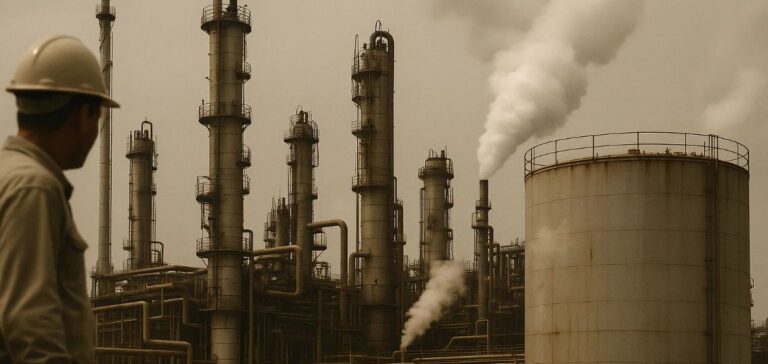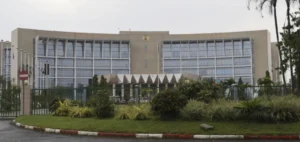On April 16, 2025, US authorities announced sanctions against Shandong Shengxing Chemical Co., an independent refinery in China, accused of illegally processing Iranian oil. According to the US State Department, the company is said to have purchased over $1 billion worth of oil from Iran, violating restrictions placed to curb Iranian exports.
This new crackdown on Iran’s activities is part of the “maximum pressure” strategy initiated under the administration of Donald Trump to counter the destabilising activities of the Iranian regime. Washington clarified that these sanctions aim to block access to the international financial system for any company involved in importing Iranian oil, particularly to China, Iran’s largest trading partner.
In parallel, several other companies and vessels, considered part of Iran’s “ghost fleet”, have also been sanctioned. These entities are believed to be responsible for illegal shipments of Iranian oil to China. State Department spokeswoman Tammy Bruce stated that the United States will continue holding both Iran and its partners accountable for their actions related to the sale of oil.
This marks the second time that US authorities have targeted an independent Chinese refinery. In 2022, another refinery, Luqing Petrochemical, was similarly sanctioned. This policy provoked a strong response from Beijing, which accuses the United States of seeking to disrupt trade relations between China and Iran.
The situation remains tense, especially as the International Atomic Energy Agency (IAEA) recently warned that Iran is close to acquiring nuclear military capabilities. With discussions scheduled between Iranian and international authorities in Tehran, the United States seems determined to maintain its economic pressure on the country.
Sanctions on the Iranian energy sector
The US sanctions have direct consequences on the Iranian energy sector, notably disrupting financial transactions and oil supply chains. The goal of the United States is to reduce Iran’s revenue, which funds its military and diplomatic activities. By targeting Chinese refineries involved in processing Iranian oil, Washington hopes to prevent China from becoming a major entry point for these illegal exports.
International reactions and diplomatic tensions
The US sanctions quickly sparked a strong reaction from Beijing. China expressed its displeasure, denouncing the US attempts to interfere in its economic and commercial affairs. The Chinese government clarified that it would continue its trade relations with Iran despite international pressures. This situation could escalate diplomatic tensions between the two countries, especially in the context of growing geopolitical rivalry.






















